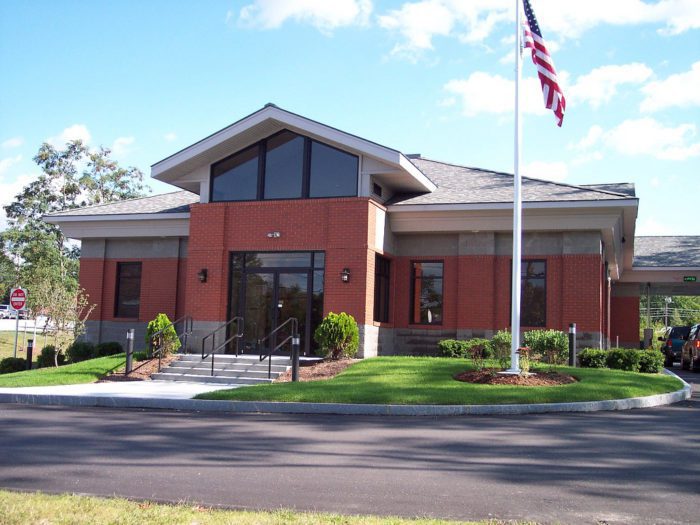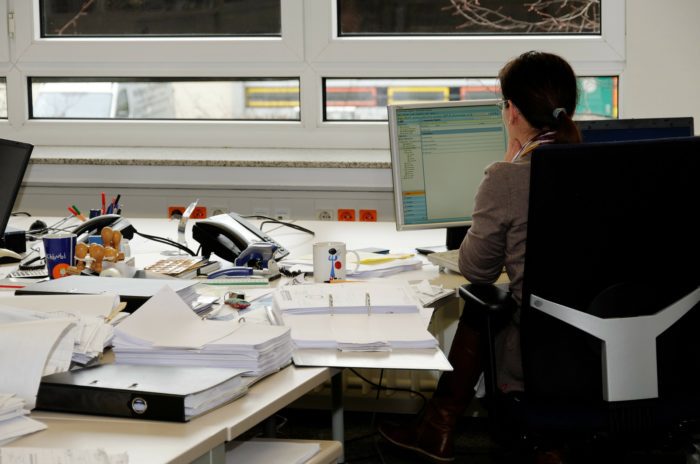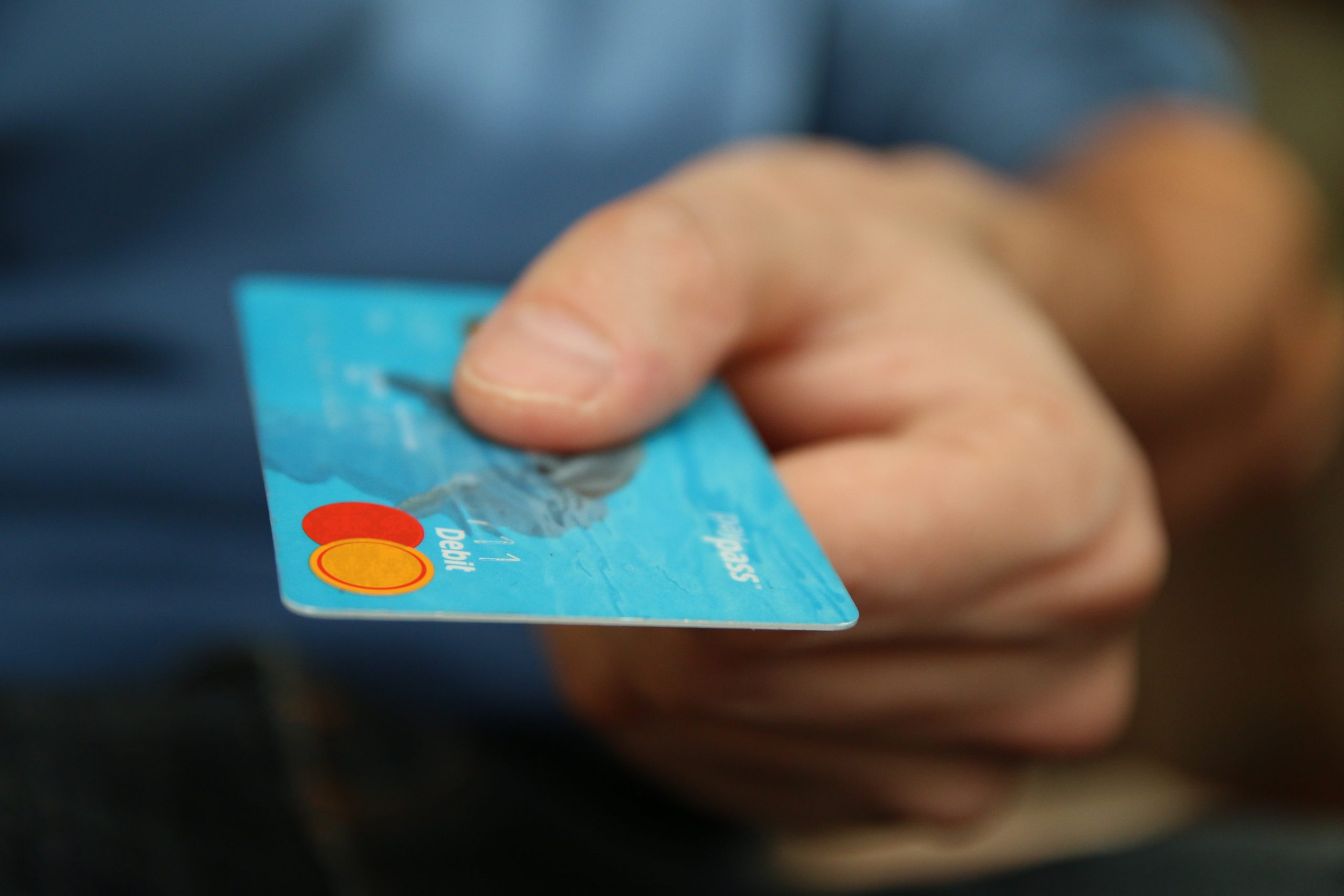Last Updated on November 30, 2022
Banks and credit unions have clients from all walks of life coming into their buildings each day. These establishments tend to be quiet and impeccably neat; however, there is always the potential for someone to become sick due to all of the shared items and surfaces between staff and customers. With a few simple additions, the chances of a client or employee becoming sick can be reduced.


There are over 90,000 FDIC bank locations and approximately 500,000 tellers in the United States. On average, they can complete 20 transactions in an hour, which means each employee can work with a maximum of 150 people in a day. Credit unions see plenty of individuals too, with the current estimate at 104.9 million members. At both establishments, patrons hand cash, checks, or a slip to staff, and in turn, receive money or another paper for signing. Sharing these items means both parties are sharing their germs too. They work with many clients and quickly, so leaving their desks to wash their hands is not always an option. Keeping automatic hand sanitizer dispensers within reach gives workers the chance to wash their hands in less than a minute.
In-person interactions are not the only way tellers can pick up a few germs. When outside businesses bring in cash to be deposited, bank employees must count and sort it all after other customers and staff handled it. This adds up to many hands on that money by the time it reaches the tellers. After being in circulation, each dollar bill has an average of 3,000 microbes on it. In order of most to least prevalent, a study performed by New York University found the following types of bacteria on them:
- Acne-causing
- Harmless microbes normally on skin
- Mouth (licking fingers to count out bills)
- Vaginal (not washing hands after bathroom use)
- Antibiotic-resistant (resistant to penicillin and methicillin)
- Fecal and Staphylococcus
Hand washing may feel just as necessary after counting cash as it does after a bathroom break. In the restroom, touch-free appliances are the more hygienic option. Automatic flush systems with inline sanitizer, soap dispensers, faucets, and hand dryers decrease the risk of cross-contamination and reduce mess and waste. Most of the employees using the restroom are women, as 79% of tellers in the US are female. Providing a sanitary disposal unit for pads and tampons is another way to protect everyone from cross-contamination. The unit is touch-free and prevents other users from being exposed to bloodborne pathogens by isolating its contents with a masking tray. The Actiwipe inside of each receptacle neutralizes waste and odor. In female-dominated occupations, feminine hygiene is just as important as general hygiene.


According to microbiologist, Charles Gerba in an ABC News article, “bankers and accountants tended to be right behind teachers when it came to workplace germs, and the desks could be even dirtier.” A teller’s desk is his/her central hub of activity, so keeping it clean is a part of staying healthy on the job, especially if lunch is taken there too. Office desks typically have 400 times more bacteria than a toilet seat due to how infrequently they are cleaned. Even worse, a virus can live on a hard exterior for anywhere from a few hours to a few days. Keeping a surface sanitizer or sanitizing wipes at the ready for employees gives them the incentive and convenience to give their desks a fast and easy wipe down. It is worth their time too, as viruses were found on 60% fewer areas when workers sanitized their workspaces daily and sanitized their hands throughout the day.


Even though customers visit these establishments for a short time, the cleanliness of their area matters too. The shared pens and writing surfaces see many hands and likely harbor their fair share of bacteria. People’s hands pick up 30-50% of the microorganisms on anything they touch, so making hand sanitizer available, periodically wiping these common places and items down, or providing sanitizing wipes for customers to use at their discretion will help to keep anything sickly from spreading. Dr. Darria Long Gillespie, the executive vice president of health and wellness at Sharecare, says “If 50 people before you had used that pen, it’s almost as if you’ve shaken hands with every one of them.” This applies to other frequently touched spots, like door handles and ATM buttons.
It may be surprising to realize that banks and credit unions are hot-spots for germs, but thinking about all of the shared pens, papers, and exteriors could make you want to wash your hands after that next visit. Products that help staff and customers maintain their hand hygiene and keep common surfaces clean could make a large, positive impact. Fewer sick days and happier clients can make the investment in hygiene well worth the time and money.
Related posts:
- Hygiene Tips For Your Business: Transportation
- Hygiene Tips for Your Business: Photography Studios
- Hygiene Tips for Your Business: Healthcare
- Hygiene Tips for Your Business: Restaurants
- Hygiene Tips for Your Business: Supermarkets
- Hygiene Tips for Your Business: Medical Offices
- Hygiene Tips for Your Business: Car Dealerships
- Hygiene Tips for Your Business: Health and Country Clubs
